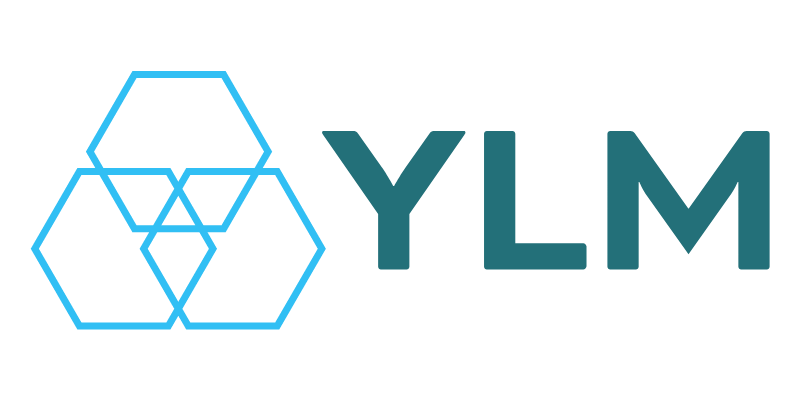For many homeowners planning a move, selling their current property is the default choice—often because they need the proceeds to purchase their next home. However, renting out your home instead of selling can be a strategic and rewarding alternative, especially if you’re looking to build wealth or take advantage of favorable market conditions. With rising demand for rental properties and steady rent prices in many areas, it might be the perfect time to explore whether becoming a landlord aligns with your goals.
Let’s dive into the pros and cons of renting your home, backed by the latest market trends and practical advice for making the best decision.
The State of the Housing and Rental Markets
Rental Markets Show Stability with Opportunities for Landlords
After several years of volatile rent increases during the pandemic, the U.S. rental market has largely stabilized. Vacancy rates remain steady at around 6.9% as of late 2024, and rent prices have grown modestly—rising by 1% year-over-year. Some cities, like Hartford, CT (+4.4%) and Buffalo, NY (+4.1%), are seeing even stronger growth.
Although there was a surplus of new rental units in 2023, slowing construction in 2025 may tighten inventory and push rent prices higher in the coming years. For potential landlords, this means a stable market today and promising opportunities ahead.
The Home Sales Market: Higher Prices and Interest Rates
On the home sales side, rising mortgage rates and record-high home prices have slowed sales activity. While this might sound like a negative, it also means that sellers are sitting on significant equity gains—an average of $319,000 per homeowner, according to ICE’s Mortgage Monitor report.
If selling your home doesn’t feel right in this market, renting could offer a way to maintain your investment while earning income and waiting for more favorable selling conditions.
The Advantages of Renting Out Your Home
1. Earn Passive Income and Build Long-Term Wealth
Renting your home can generate consistent income while allowing you to hold onto a valuable asset. For example, if your property rents for more than your monthly mortgage, taxes, and other costs, you can earn a steady profit.
Even if rent prices rise modestly (as forecasted by RealPage, with many markets expecting 2%-3% growth in 2025), the combination of rental income and home appreciation makes this an attractive option. For instance, CoreLogic predicts home prices will climb by 2.3% over the next year, further increasing your equity.
2. Meet Growing Demand for Single-Family Rentals
Many renters today are looking for space—whether it’s for remote work, family life, or enjoying outdoor activities. If your home is in a desirable school district or offers attractive features like a yard, you could command a premium price.
For example, a homeowner in the suburbs could rent their three-bedroom home to a growing family at a rate higher than typical apartment rentals in the area.
3. Dip Your Toes into Real Estate Investing
If you’ve ever considered becoming a real estate investor, starting with your current home is a lower-risk way to begin. You already know the property, and the upfront investment has been made. The income generated can be set aside for future goals like retirement or purchasing additional investment properties.
4. Flexibility for Your Future
Renting your home keeps your options open. If you relocate for a job or other reasons, you can rent your property while maintaining ownership. Should you decide to move back, you won’t have to repurchase in a higher-priced market.
5. Tax Benefits of Being a Landlord
Landlords can take advantage of tax deductions for expenses like property maintenance, mortgage interest (if related to improvements), and even depreciation. For example, if you spend $2,000 on appliance upgrades, those costs could lower your tax burden.
Always consult with a tax professional to maximize these benefits.
The Challenges of Renting Out Your Home
While renting offers many positives, it’s important to be realistic about potential downsides.
1. Tying Up Equity
If you need the proceeds from your home sale to fund your next down payment, renting might not be feasible. Consider alternatives like a home equity loan or borrowing from savings if you still want to hold onto the property.
2. Managing Tenant Issues
Handling maintenance requests, late rent payments, or difficult tenants can be stressful, especially if you live far away. For example, if a tenant calls about a broken water heater in the middle of the night, you’ll need to address it promptly.
You can hire a property management company to handle these tasks, but this typically costs 8%-12% of your monthly rent.
3. Covering Vacancies and Repairs
Even in strong rental markets, there may be periods when your property sits vacant. For instance, a month-long vacancy in a property renting for $2,500 means a significant loss. Budget for routine maintenance and unexpected repairs—like fixing a roof or replacing a faulty HVAC system—to avoid financial strain.
4. Market Uncertainty
While home values are expected to rise in the short term, real estate markets can change. If property values or demand for rentals decline, you might have to adjust your strategy, such as renting longer than planned or selling at a lower price.
Analyzing Your Decision: Rent or Sell?
To make the best choice for your situation, compare the financial and lifestyle impacts of renting versus selling:
- Financial Example (Renting):
Suppose your mortgage, taxes, and maintenance costs total $2,000 per month. If you charge $2,800 in rent, you’d net $800 monthly. Multiply that by 12, and you’re earning $9,600 annually—before accounting for equity gains. - Financial Example (Selling):
If selling your home today would yield a $100,000 profit after expenses, ask yourself how many years of renting would generate the same amount. For instance, at $9,600 per year in rental profit, it would take about 10 years to match that.
Final Thoughts
Renting out your home instead of selling offers a path to passive income, flexibility, and potential long-term wealth. However, it also requires careful planning, financial stability, and a willingness to take on the responsibilities of being a landlord.
If selling feels like the right move, make sure you’ve evaluated all your options for maximizing your sale. But if renting aligns better with your goals, take the time to set competitive rent, plan for costs, and prepare your property to attract quality tenants.
Whether you choose to sell or rent, both options have the potential to support your financial future in meaningful ways.















